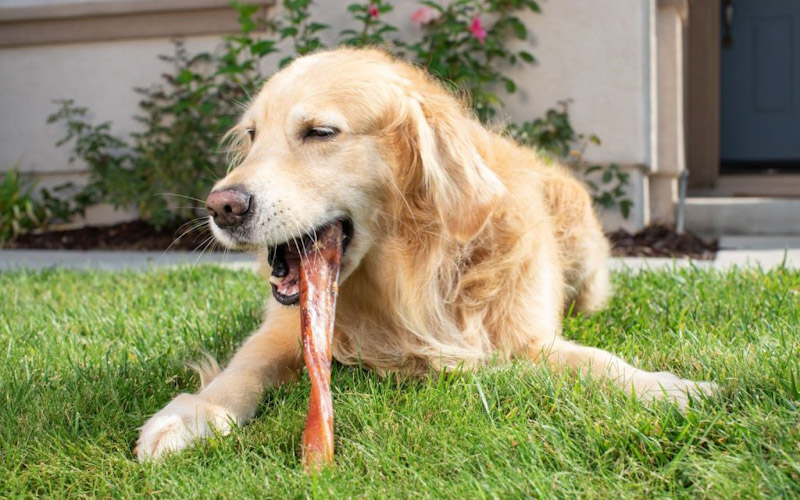Worm infestations are one of the most common health issues that puppies face. While these parasites are often easily treated, they can cause significant harm if left undetected. For new and seasoned pet owners alike, recognizing the signs of worms early is crucial to ensuring a puppy’s long-term health. Symptoms may range from mild gastrointestinal distress to more severe problems such as weight loss, a bloated abdomen, and lethargy. In this article, we’ll guide you through the common signs of worms, the different types of parasites that could affect your puppy, and the steps to take for diagnosis and treatment. Understanding these symptoms can help you act quickly, ensuring your puppy gets the care they need to grow into a healthy adult dog.

1. Why Worms in Puppies Are a Serious Concern
Worm infestations in puppies are not only common but can also pose significant health risks if left untreated. Worms, such as roundworms, hookworms, and tapeworms, often invade a puppy’s intestines, where they compete for essential nutrients. This can lead to malnutrition, as the puppy’s body struggles to absorb the food it needs for proper growth. As a result, even puppies with healthy appetites may experience weight loss, stunted growth, and weakened immune systems.
In severe cases, untreated worm infestations can cause more serious complications. A heavy worm load may lead to intestinal blockages, anemia, or respiratory issues if the parasites migrate to the lungs. These health problems can significantly affect a puppy’s development, making early detection and treatment critical.
Young puppies are particularly vulnerable because their immune systems are still developing. Vigilance in monitoring symptoms—such as a bloated belly, vomiting, or diarrhea—can help ensure that any worm infestation is caught early, minimizing potential damage. Acting quickly can prevent long-term health problems and set the foundation for a strong, healthy adult dog.
2. Common Types of Worms in Puppies
Puppies can be affected by several types of intestinal worms, each with different modes of transmission and impact on health. Understanding the most common types of worms will help pet owners recognize the signs and act promptly.
- Roundworms: These are the most common worms found in puppies. Roundworms are often transmitted from the mother, either in utero or through her milk, but can also be picked up from the environment. Puppies with roundworms often have a pot-bellied appearance, and the worms themselves may be visible in their stool or vomit. They can cause diarrhea, vomiting, and stunted growth if left untreated.
- Hookworms: Contracted through contaminated soil or from other infected animals, hookworms are tiny but dangerous. They attach to the intestinal lining and feed on blood, which can lead to anemia, especially in young puppies. Puppies may develop pale gums, weakness, and bloody stool. Severe cases can even be fatal if not treated in time.
- Tapeworms: These worms are usually contracted through the ingestion of infected fleas. Flea prevention is critical in preventing tapeworm infestations. Tapeworm segments may appear in a puppy’s stool, resembling small grains of rice. While tapeworms are not as harmful as other worms, they can cause irritation and weight loss.
- Whipworms: Though less common, whipworms can still pose a significant health risk. They live in the large intestine, where they cause diarrhea, weight loss, and general weakness. These worms are contracted from contaminated environments and can be difficult to diagnose without a fecal test.
By identifying these common types of worms and their symptoms, pet owners can better protect their puppies from serious health complications.

3. How to Spot Worms in Your Puppy: Key Symptoms
Recognizing the symptoms of a worm infestation in your puppy is crucial for early intervention and treatment. Worms can cause a range of symptoms, some more obvious than others, so knowing what to look for can make all the difference in safeguarding your puppy’s health.
- Visible Signs: One of the clearest indications that your puppy has worms is the presence of worms or worm segments in their stool or vomit. Roundworms may appear as long, spaghetti-like strands, while tapeworms often resemble small, rice-like segments in the stool. While not always visible, if you notice any of these in your puppy’s waste, it’s a strong sign of a worm infestation.
- Physical Symptoms: Puppies with worms often display several physical symptoms. A bloated belly is a common sign of roundworms, especially in young puppies. Additionally, diarrhea—sometimes with blood or mucus—can indicate the presence of hookworms or whipworms. Despite maintaining or even increasing their appetite, puppies with worms may experience weight loss, as the parasites rob them of essential nutrients. Vomiting is another symptom that can be linked to worms, particularly in cases of heavy infestations.
- Behavioral Changes: Worm infestations often affect a puppy’s overall energy and behavior. You may notice lethargy, as the puppy’s body struggles to cope with the parasitic load, making them less active than usual. Some puppies may experience changes in appetite, ranging from a sudden increase to a notable decrease, depending on the severity of the infestation. Additionally, restlessness, particularly at night, may occur as the worms cause internal discomfort.
- Unusual Signs: In more severe cases, worm infestations can lead to less obvious symptoms. For example, if the worms migrate to the lungs, the puppy may develop a persistent cough. Furthermore, a poor coat condition, characterized by dull, dry fur, can indicate that the puppy is not receiving enough nutrients due to the parasitic infection.
It’s important to note that these symptoms may not always appear in isolation. Rather than focusing on a single symptom, watch for patterns or combinations of symptoms that could suggest a worm infestation. A puppy with both a bloated belly and diarrhea, for example, is more likely to be suffering from worms than one with only a mild change in appetite. By paying attention to these signs and acting quickly, you can help your puppy recover and thrive.

4. How Veterinarians Diagnose Worms
When it comes to diagnosing worms in puppies, veterinarians rely on several key methods to ensure an accurate diagnosis. One of the most important diagnostic tools is a fecal test, where a small sample of the puppy’s stool is analyzed for the presence of worm eggs or larvae. This test is crucial because many worms are not visible to the naked eye, and their eggs or microscopic larvae can only be detected under a microscope.
In addition to fecal testing, veterinarians often conduct a physical exam to check for signs of worm infestations, such as a bloated abdomen, poor coat condition, or weight loss. If necessary, more advanced diagnostic techniques may be used, such as microscopic analysis of the fecal sample, which allows the vet to identify the exact type of worm affecting the puppy.
Only a veterinarian can properly determine the specific type of worm present and recommend the appropriate treatment. Different worms require different deworming medications, and using the wrong treatment can be ineffective or even harmful. Consulting a vet ensures the puppy receives the correct diagnosis and care, leading to a faster recovery and better long-term health outcomes.
5. Treatment Options for Worms
Treating worms in puppies involves a targeted approach with deworming medications. These medications are designed to eliminate parasites from the puppy’s system and vary based on the type of worm present. Commonly used dewormers include:
- Pyrantel Pamoate: Effective against roundworms and hookworms. It paralyzes the worms, allowing the puppy’s digestive system to expel them.
- Fenbendazole: Broad-spectrum dewormer that works against roundworms, hookworms, whipworms, and some types of tapeworms.
- Praziquantel: Specifically targets tapeworms by breaking down their body structure so they can be eliminated through the feces.
Timeline of Recovery: After administering the deworming medication, most puppies begin to show improvement within a few days. Symptoms such as diarrhea and bloating should start to resolve, and the puppy’s overall health and vitality should return. However, it’s important to complete the entire treatment course as prescribed by your vet to ensure all worms are eradicated and to prevent reinfection.
Importance of Completing the Treatment Plan: Adhering to the full treatment regimen is crucial. Partial treatment can lead to incomplete elimination of the worms, allowing some to survive and potentially cause a relapse. Additionally, follow-up vet visits are essential to ensure that the worms have been fully cleared and to check for any recurring issues.
Over-the-Counter vs. Prescription Treatments: While over-the-counter dewormers are available, they may not be as effective or specific as prescription medications. Vet-prescribed dewormers are tailored to the type of worm and the severity of the infestation, ensuring a more effective treatment. Your vet’s recommendations are based on a thorough diagnosis and are designed to address the specific needs of your puppy, providing a safer and more reliable solution.

6. Preventing Worms in Puppies
Preventing worm infestations in puppies is key to maintaining their health and well-being. Adopting a proactive approach can significantly reduce the risk of your puppy becoming infested. Here’s how to effectively prevent worms:
- Regular Deworming Schedules: Adhering to a deworming schedule as recommended by your veterinarian is crucial. Puppies are typically dewormed at regular intervals starting from a young age, with follow-up treatments as needed based on their risk factors and health. This routine helps prevent infestations and ensures early detection if worms do appear.
- Maintaining a Clean Environment: Keeping your puppy’s living area clean is essential in preventing worm infestations. Regularly clean and disinfect areas where your puppy eats, sleeps, and plays. Promptly remove and dispose of feces to minimize exposure to worm eggs and larvae in the environment.
- Using Flea Preventatives: Tapeworms are often transmitted through fleas, so using flea preventatives is an effective way to prevent tapeworm infections. Regularly treating your puppy with vet-recommended flea control products helps keep fleas at bay and reduces the risk of tapeworms.
- Avoiding High-Risk Areas: Be cautious about where you allow your puppy to roam. Dog parks and other areas with poor sanitation can be breeding grounds for parasites. Limit your puppy’s exposure to such environments until they are fully vaccinated and have completed their initial deworming series.
By following these preventive measures, you can help ensure that your puppy remains healthy and worm-free, paving the way for a happy and thriving life.

Conclusion
Detecting and treating worms in puppies is crucial for their overall health and development. By understanding the common signs of worm infestations, such as visible worms in stool, a bloated belly, and behavioral changes, you can take prompt action to address the issue. Remember, roundworms, hookworms, tapeworms, and whipworms each pose unique risks, and only a veterinarian can accurately diagnose and prescribe the appropriate treatment.
Regular deworming schedules, maintaining a clean environment, using flea preventatives, and avoiding high-risk areas are essential steps in preventing worms. Early detection and consistent prevention efforts not only safeguard your puppy’s health but also contribute to their long-term well-being.
If you notice any symptoms of worms or have concerns about your puppy’s health, consult your veterinarian as soon as possible. They can provide a thorough diagnosis and recommend an effective treatment plan. By staying vigilant and proactive, you’ll help ensure that your puppy grows into a healthy, happy adult dog.